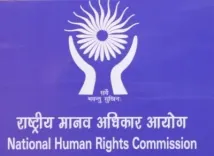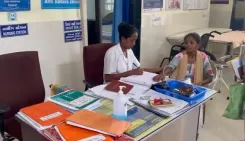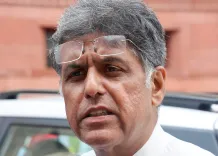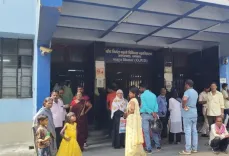1.39 million registered allopathic doctors, 751,768 in AYUSH: Government

Synopsis
Key Takeaways
- 1,386,150 registered allopathic doctors.
- 751,768 practitioners in the AYUSH system.
- Estimated doctor-population ratio of 1:811.
- 131 new medical colleges operational out of 157 approved.
- Family adoption program in MBBS curriculum for rural healthcare.
New Delhi, April 1 (NationPress) The government announced on Tuesday that there are 1,386,150 registered allopathic doctors and 751,768 registered practitioners in the AYUSH system of medicine, leading to an estimated doctor-population ratio of 1:811.
Currently, the nation boasts a total of 74,306 postgraduate seats and 118,190 MBBS seats, as stated by Union Minister of State for Health and Family Welfare, Anupriya Patel, in a written reply to the Rajya Sabha.
"If we assume that 80% of registered practitioners in both the allopathic and AYUSH systems are available, the estimated doctor-population ratio in our country stands at 1:811," the minister remarked.
The government has undertaken various measures to enhance the number of doctors and medical professionals in the nation. This includes a centrally sponsored scheme aimed at establishing new medical colleges by upgrading district/referral hospitals, where 131 new medical colleges are currently operational out of 157 approved colleges.
“Under the 'Upgradation of Government Medical Colleges by Construction of Super Specialty Blocks' as part of the Pradhan Mantri Swasthya Suraksha Yojana (PMSSY), a total of 75 projects have received approval, with 71 completed so far, according to the minister.
Additionally, 22 AIIMS have been approved under the Central Sector Scheme for establishing new AIIMS, with undergraduate courses initiated in 19 of these institutions.
“A family adoption program has been included in the MBBS curriculum to ensure equitable healthcare access for the rural population. Under the District Residency Programme of the National Medical Commission (NMC), second and third year PG students from medical colleges are assigned to district hospitals," the minister added.
Furthermore, non-monetary incentives like preferential admission in postgraduate courses for staff serving in challenging areas and improved accommodation arrangements in rural locations have been introduced under the National Health Mission (NHM). The NHM also supports the multi-skilling of doctors to address the shortage of specialists, she noted.
Enhancing the skills of existing healthcare resources is another critical strategy under the National Rural Health Mission (NRHM) aimed at improving health outcomes, she concluded.








